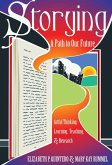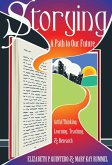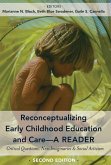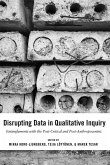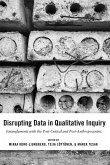This book tells the methodological tale of a long term critical ethnography with a midwestern school district whose new language learning, transnational population was increasing. Rather than report on the findings of the study, the author shares the intimate methodological details of doing participatory ethnography of a school under transformation. Approaches aimed at shifting attitudes and possibilities included the use of Theatre of the Oppressed and analyses of monocultural mythmaking introducing new concepts. The author introduces an analysis of change that builds from a David Wood's deconstruction of time. Taken all together, the book illustrates creative and novel ways to engage in social justice transformation with school partners using participatory critical ethnography.
"A must-read! Walking with Strangers is a stunning work, fully transforming traditional notions of social research. Barbara Dennis's many-sided brilliance as an activist, thinker, collaborative partner, and moral/ethical leader shines through the text, inspiring the reader with new ideas and optimism. Walking with Strangers gives an account of working with racial and linguistic diversity, a topic particularly poignant at this time when racist themes and violence in U.S. culture have risen and intensified. It is a profound work, both kind and firm in its authentic presentation of complexities, tensions, and dilemmas within human relationships. The pages are filled with startling philosophical insights brought forth by Dennis for the first time: story seeds, the identity shadow, a distinction between reconstruction and representation, contributions to our understanding of time, and the list goes on and on. Simultaneously, we are introduced to innovation after innovation in practices such as creative ways of using theatre, art, and conflict in the collaborative production of new knowledge. But all the massive creativity and intelligence in this book would mean little without the remarkable honesty in which it engages with the moral and ethical complexities of human pain, resistance, connection, and compassion." -Phil F. Carspecken, Professor, Indiana University




